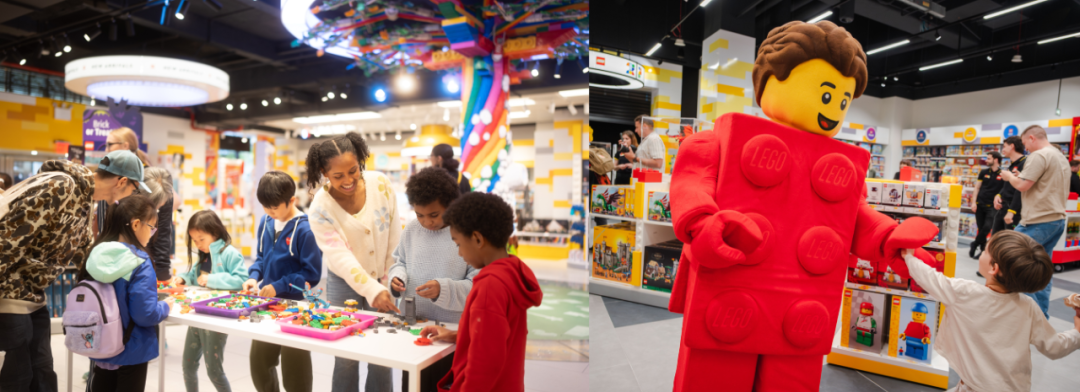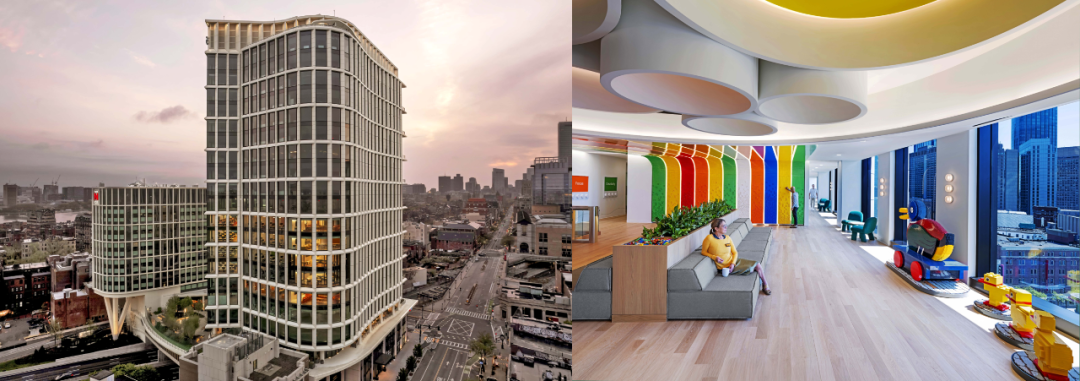World's Largest Toy Company Earns 7.2 Billion in First Half of the Year!
On August 27, the LEGO Group released its financial report for the first half of 2025, showing a 12% increase in revenue to DKK 34.6 billion (approximately RMB 38.5 billion), a record high. Sales grew by 13% (detailed figures not disclosed); operating profit increased by 10% to DKK 9 billion (approximately RMB 10 billion); and net profit rose by 10% to DKK 6.5 billion (approximately RMB 7.2 billion).
LEGO pointed out that the Group’s performance far exceeded the overall level of the toy industry, thanks to strong demand for its product portfolio across major global markets, with Western Europe, Central and Eastern Europe, the Middle East, and Africa being particularly outstanding. The report did not mention the performance of the Chinese market.
In the first half of 2025, the LEGO Group launched a record-breaking 314 new product sets. The best-selling themed series included both original and entertainment IP collaboration products, such as LEGO City, LEGO Technic, LEGO Botanical Collection, LEGO Icons, and LEGO Star Wars.

The LEGO Botanical Collection is highly popular during shopping seasons such as Valentine's Day and Mother's Day. Meanwhile, the LEGO Group has partnered with a new collaborator, Formula 1, successfully launching a range of new products and brand activities during the F1 Grand Prix.
The LEGO Group's new collaborations with "Bluey" and "One Piece" further enrich its product portfolio. The company also announced a multi-year partnership with The Pokémon Company, with plans to launch LEGO Pokémon sets for fans in 2026. In addition, the LEGO Group has launched the "Play Unstoppable" brand campaign to encourage girls to unleash their creativity and become the next generation of builders.
In addition, the LEGO Group continued to increase its investment in both online and physical retail experiences. In the first half of this year, the company opened 24 new branded retail stores, bringing the total number of branded retail stores to 1,079 across 54 markets worldwide. This includes the first store in New Delhi, India, further enhancing the brand’s influence in the local market.

As part of ongoing digitalization, the LEGO Group is also investing in the application of new technologies and platforms to create a superior brand experience for children, consumers, and retail partners, while enhancing employees' work efficiency and ways of working.
In April, the LEGO Group’s brand new factory in Vietnam began operations, which will drive long-term growth in the Asia-Pacific region. Covering an area of 150,000 square meters, it is the company’s sixth factory worldwide and features the most environmentally sustainable facilities to date.
Currently, the company is investing over $1.5 billion in Virginia, USA, to build a new factory and a 185,000-square-meter regional distribution center, both of which are expected to be operational by 2027. Meanwhile, the factories in Mexico and Hungary are also undergoing continuous expansion.
In addition, the LEGO Group has established a new Americas regional headquarters in Boston, USA, where approximately 800 employees will be based to support business development in the United States and the entire Americas market.

At the same time, the LEGO Group continues to invest in various initiatives that reduce environmental impact, including the use of more sustainable materials in its products. The company has once again significantly increased its procurement of sustainably sourced materials, with the proportion of renewable materials doubling in the first half of 2024, further reducing reliance on virgin fossil-based materials. The company is steadily progressing towards its annual goal: sustainably sourced materials will account for 60% of all materials procured, including materials purchased with mass balance certification (53%) and materials that have undergone classified processing (7%).

To achieve this goal, the LEGO Group has also introduced rSEBS material—a more sustainable new material made from old fishing nets, ropes, and engine oil, which has been used to produce some LEGO tires. In addition, the group will introduce e-methanol, a material made by combining renewable energy with carbon dioxide from biological waste, to manufacture hard LEGO components such as wheel axles, connectors, and the hands of LEGO minifigures.
【Copyright and Disclaimer】The above information is collected and organized by PlastMatch. The copyright belongs to the original author. This article is reprinted for the purpose of providing more information, and it does not imply that PlastMatch endorses the views expressed in the article or guarantees its accuracy. If there are any errors in the source attribution or if your legitimate rights have been infringed, please contact us, and we will promptly correct or remove the content. If other media, websites, or individuals use the aforementioned content, they must clearly indicate the original source and origin of the work and assume legal responsibility on their own.
Most Popular
-

List Released! Mexico Announces 50% Tariff On 1,371 China Product Categories
-

Dow, Wanhua, Huntsman Intensively Raise Prices! Who Controls the Global MDI Prices?
-

Clariant Unveils Cost-Cutting Plan Details, Plans to Shut Down Multiple Plants
-

New Breakthrough in Domestic Adiponitrile! Observing the Rise of China's Nylon Industry Chain from Tianchen Qixiang's Production
-

Nissan Cuts Production of New Leaf EV in Half Due to Battery Shortage






